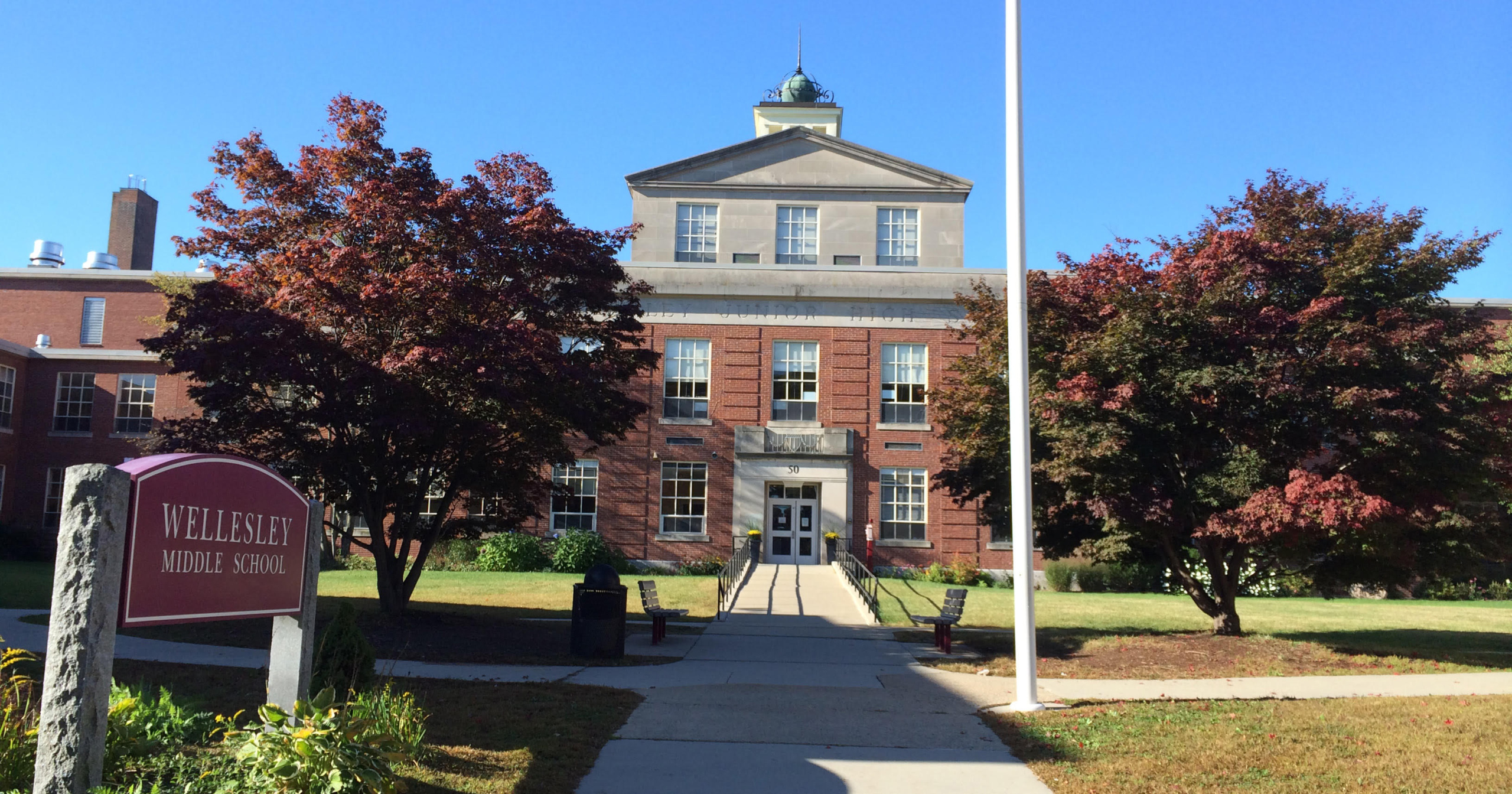This year, U.S. News and World Report released its annual rankings of high schools across the nation. Along with it, the magazine released a new series of rankings which include middle schools and elementary schools. Although rankings in the past have been high for Wellesley, a recent downward trend has sparked concern with many community members.
This year, the high school ranked 26th in the state – a drop from its 2014 ranking of 4th in the state. The downward trend has been ongoing every year in between, with Wellesley falling to its lowest in 2020 when it placed 28th in the state. Despite the small rebound, many students, parents, and community members are concerned that Wellesley will only continue to decline in the coming years. These results have been released amidst racial equity and bullying incidents, and a lawsuit against the school district, leading to many community members calling for change.
Dr. Jaime Chisum, principal of the high school, discussed the declining ranking in a press conference conducted by The Bradford staff.
“The [U.S. News and World Report] wants us to focus on AP scores, and our AP scores are actually quite good. If you just took our AP scores we’re not ranked 26th, but if you took the number of kids who take AP classes here, it lowers the ranking. That’s one of the things that they measure, percent AP enrollment,” said Chisum.
High school rankings are very common nationally, but this year, the magazine came out with middle school rankings as well, and to much surprise, Wellesley Middle School was ranked 46th in the state. Middle schools in surrounding towns like Pollard in Needham, Charles E. Brown in Newton Centre, and High Rock in Needham placed 8th, 14th, and 24th, respectively.
Many community members have grown concerned about the town’s rankings across the board and are wondering why Wellesley has been ranking relatively low when compared to surrounding schools. Ranking in high school relies heavily on AP classes taken, AP test scores, and MCAS scores, but in middle school, rankings exclusively use MCAS scores to determine the rankings.
“I try not to place too much of an emphasis on it. And I hope the community won’t either. Because there are a lot of factors that go into elementary schools and middle schools that don’t necessarily apply, that are different for high school,” said Dr. Mark Ito, principal of Wellesley Middle School. “If we focus on some of the more intangible things that we’re trying to teach kids like social skills or ways to interact with each other – things that you learn in Wellesley – they are not really reflected in rankings because they cannot be quantified. So to me, it feels a little bit unfair to say that we’re just going to rank based on some sort of academic performance on these standardized tests when there are so many other factors that make middle schools and elementary schools way more successful, based on these other factors.”
Wellesley administrators are aware of these rankings and do not seem to be concerned. However, many in the community tend to have different reactions. Some community members have grown outraged over the years as they have seen the high school drop in ranking year after year. On The Swellesley Report, town resident Neal Glick addressed this pressing issue.
“These rankings represent a shock to the system but are hardly surprising. Test scores in Wellesley have been declining regularly year-over-year for many years now,” said Glick. “To see all of our elementary schools getting beat out by Dover and Westwood, and all but one being surpassed by Wayland is telling. To see the Middle School ranking of 46th in the State, beaten badly by many surrounding ‘peer’ communities is a disgrace.”
Davida Fox-Melanson, a member of the high school’s student council, expressed the inaccuracy of the school rankings
“One of the main factors for people moving to Wellesley is the school system. People here are very proud of the school system and want their kids to go to a good school, it’s when they see these rankings without context that they start to panic,” said Fox-Melanson. “I’ve been a part of the Wellesley High School community and I know it is a great school, and I know what those rankings are made up of. I can assure the community that the rankings are not a valid way of completely summarizing a school.”
Dr. Chisum echoes Fox-Melanson and adds that the rankings do not measure the same criteria he and his administration strive to improve on.
“If you have to have huge numbers of kids taking an AP test to move up the rankings, should we just artificially start testing everybody because then we’d go up in the rankings? It wouldn’t make you a better student, wouldn’t make you a better learner, wouldn’t make you more prepared for life, but it would move up the rankings,” said Chisum.
The U.S. News World Report’s rankings for high schools in Massachusetts can be accessed here.

